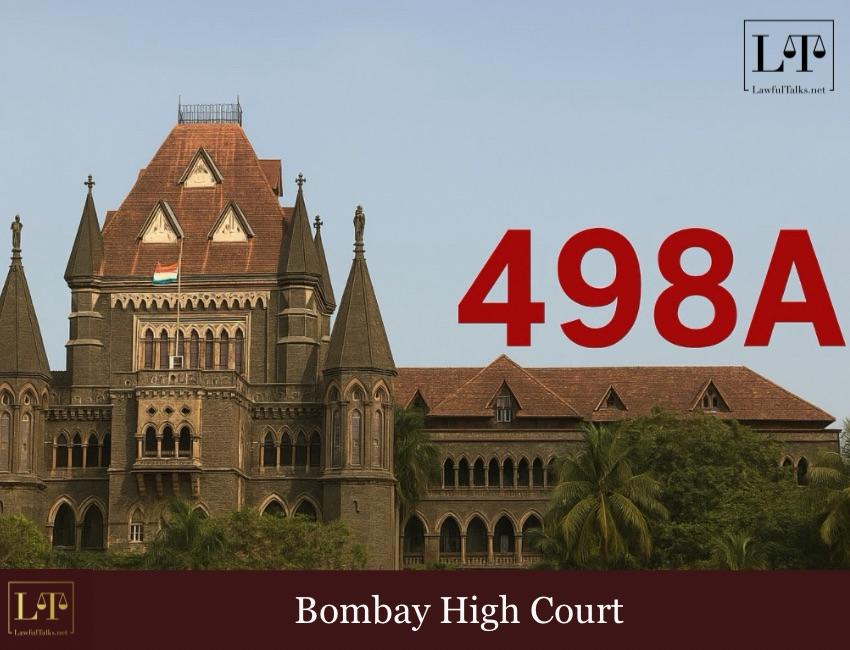Allahabad HC Sets Aside Afzal Ansari's Conviction, Allows Him to Continue as MP

The Bombay High Court has ruled that statements made by a woman’s parents—claiming their daughter was “unhappy” and often “wept” due to alleged harassment by her in-laws—are not sufficient to establish guilt under Section 498-A (cruelty) of the Indian Penal Code.

Justice Milind Sathaye, sitting as a single-judge bench, set aside a 1998 Sessions Court judgment that had convicted Ramprakash Manohar under Sections 498-A and 306 (abetment of suicide) in connection with the death of his wife, Rekha, who drowned in Pune in 1997.
Facts:
The Court observed that there were allegations against the appellant of demanding money from Rekha, which she obtained from her parents, and of securing a sewing machine at the request of her in-laws.
A specific incident during Diwali 1997 was noted, where Rekha’s father visited her matrimonial home. On that occasion, her mother-in-law allegedly refused to let Rekha accompany him and remarked that if Rekha wished to visit her parental home, she should go on her own, as no one from the matrimonial family would come to bring her back.
The Court further recorded that when Rekha later went missing, her parents lodged a complaint; however, they did not make any allegations of harassment against the appellant or his parents at that time.
Justice Sathaye held that the prosecution failed to prove the essential ingredients of cruelty-namely, conduct of such a nature as to drive the woman to commit suicide or harassment intended to coerce her or her family into meeting unlawful demands.
He emphasized, "From the aforesaid evidence, it is clear that apart from payment of Rs.1000/- in or around Diwali of 1997 during marriage of a relative, there is no other particular available of payment of money to Appellant. It is also clear from the aforesaid evidence that apart from the case of deceased-Rekha being unhappy and weeping during interactions, there is no other specific incidence of physical or mental cruelty stated by any of the witnesses including PW-1 and PW-3 i.e. parents of deceased. It is also clear that the Appellant's house is situated in an area where there is no individual latrines available and people use common public toilets provided by corporation and also some people visit the river bank for answering the call of nature."
On these grounds, the High Court quashed the conviction and consequent sentence of three years’ rigorous imprisonment imposed on the appellant.
Appearance:
Mr. Pawan Mali i/b. Mr. Deepak More for the Appellant Mr. Vinit Kulkarni, APP for the Respondent-State
Case Title : Ramprakash @ Popat Govind Manohar vs State of Maharashtra, Criminal Appeal 885 of 1998)

Nikita Muddalgundi
Second Year, B.A. LL.B student
Latest Posts
Categories
- International News 19 Posts
- Supreme Court 390 Posts
- High Courts 383 Posts



















































































































































































































































































































































































































































































































































































































































































































































































































